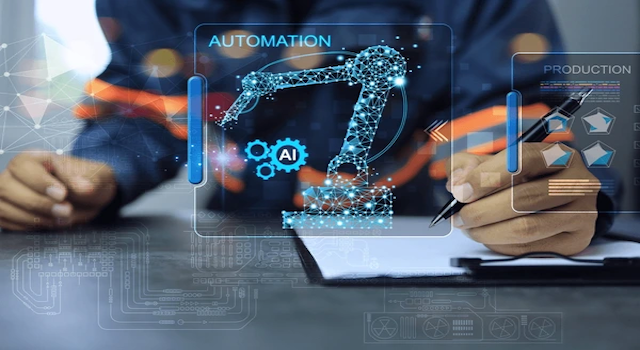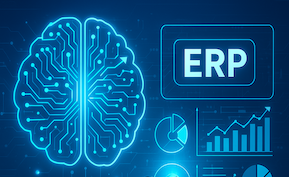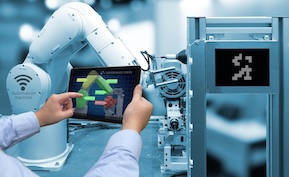Artificial Intelligence
Construction Management
AI Construction Software for Specialty Contractors: Resource Optimization & Safety Enhancement

Specialty contractors face distinct challenges managing skilled trades, specialized equipment, and safety-critical work environments while maintaining high-quality standards and efficient resource utilization. AI-enhanced construction software provides specialty contractors with intelligent resource optimization, predictive safety management, and specialized workflow automation that address the unique requirements of trade-specific construction operations.
Specialty Contracting Operational Challenges
Resource Management Complexity:
- Highly skilled craftsmen requiring optimal utilization and scheduling
- Specialized equipment with high acquisition costs demanding maximum efficiency
- Project-based work requiring dynamic resource allocation across multiple job sites
- Trade-specific safety requirements and regulatory compliance demands
Traditional Management Limitations:
- Manual scheduling leading to suboptimal resource allocation
- Reactive safety management addressing incidents after they occur
- Limited visibility into crew productivity and performance optimization opportunities
- Spreadsheet-based project management limiting scalability and insight generation
Market Pressures:
- Skilled labor shortage increasing importance of productivity optimization
- Safety regulations requiring detailed documentation and proactive compliance
- Client demands for specialized expertise combined with general contractor efficiency
- Competition requiring both technical excellence and operational efficiency
AI Construction Software Capabilities for Specialty Contractors
Intelligent Resource Optimization
Traditional Resource Management:
- Manual crew scheduling based on availability and project requirements
- Equipment allocation decisions based on current needs without optimization
- Limited analysis of crew productivity across different project types
- Reactive resource reallocation when projects change or delays occur
AI-Enhanced Resource Intelligence:
- Crew Performance Analytics: Machine learning analyzes individual and team productivity across different project types and conditions
- Dynamic Scheduling Optimization: AI continuously optimizes crew and equipment allocation based on project requirements, weather conditions, and resource availability
- Skill-Based Assignment: Intelligent matching of crew capabilities with specific project technical requirements
- Multi-Project Resource Balancing: AI optimizes resource allocation across entire project portfolio to maximize utilization and profitability
Resource Optimization Benefits:
- Productivity Improvement: 25-35% increase in crew productivity through optimal assignment and scheduling
- Equipment Utilization: 85%+ utilization rates through intelligent scheduling and predictive maintenance
- Skilled Labor Maximization: Optimal deployment of specialized skills where they generate highest value
- Scalability: Ability to manage 50%+ more projects with existing management overhead
Predictive Safety Enhancement
Traditional Safety Management:
- Periodic safety meetings and training sessions
- Reactive incident response and investigation
- Manual safety inspections and compliance checklists
- Limited ability to predict and prevent safety incidents
AI-Powered Safety Intelligence:
- Hazard Recognition: Computer vision systems continuously monitor work environments for potential safety risks
- Predictive Incident Analysis: Machine learning identifies patterns that lead to safety incidents and provides early warnings
- Compliance Automation: AI tracks and documents safety compliance requirements automatically
- Behavioral Safety Analytics: Analysis of work patterns and behaviors that correlate with safe and unsafe practices
Safety Enhancement Benefits:
- Incident Prevention: 60% reduction in recordable safety incidents through predictive monitoring
- Compliance Efficiency: 80% reduction in time spent on safety documentation and reporting
- Insurance Benefits: 15-25% reduction in safety-related insurance premiums
- Reputation Protection: Enhanced safety reputation supporting premium pricing and client relationships
Trade-Specific Workflow Automation
Specialty Trade Intelligence:
- Quality Control Automation: AI-powered quality assurance specific to trade requirements and standards
- Regulatory Compliance: Automated tracking and documentation for trade-specific licensing and certification requirements
- Material Optimization: Intelligent material planning and waste reduction for specialty applications
- Client Communication: Automated progress reporting tailored to specialty trade deliverables and milestones
Industry-Specific AI Applications
Electrical Contracting
Electrical-Specific AI Features:
- Load Analysis Optimization: AI analyzes electrical load requirements and optimizes installation sequencing
- Code Compliance Automation: Machine learning ensures installation compliance with electrical codes and standards
- Testing and Commissioning: Automated tracking of electrical testing requirements and results
- Energy Efficiency Analysis: AI recommendations for energy-efficient installation practices and technologies
Electrical Contracting Benefits:
- 30% improvement in installation efficiency through optimized work sequencing
- 95% code compliance accuracy through automated checking and validation
- 50% reduction in testing and commissioning time through AI coordination
- Enhanced client value through energy efficiency recommendations and analysis
HVAC Systems
HVAC-Specific Intelligence:
- System Design Optimization: AI analysis of HVAC system efficiency and performance optimization
- Installation Sequencing: Intelligent coordination of mechanical installation with other trades
- Commissioning Automation: AI-powered system commissioning and performance validation
- Maintenance Planning: Predictive maintenance recommendations for installed HVAC systems
HVAC Contractor Advantages:
- 25% improvement in installation productivity through optimized sequencing
- Superior system performance through AI-optimized design and installation
- 40% faster commissioning through automated testing and validation
- Long-term client relationships through predictive maintenance services
Plumbing and Mechanical
Plumbing-Specific AI:
- Water System Analysis: AI optimization of water system design and installation
- Leak Detection Intelligence: Predictive analysis of potential leak points and prevention strategies
- Pressure Testing Automation: AI-powered pressure testing and system validation
- Maintenance Scheduling: Intelligent preventive maintenance planning for installed systems
Plumbing Benefits:
- Enhanced system reliability through AI-optimized installation practices
- 60% reduction in callback and warranty issues through predictive quality control
- Improved client satisfaction through superior system performance
- Additional revenue streams through AI-enabled maintenance services
Concrete and Masonry
Concrete-Specific Intelligence:
- Mix Design Optimization: AI analysis of concrete mix requirements for specific applications and conditions
- Weather Impact Management: Intelligent scheduling of concrete work based on weather conditions and curing requirements
- Quality Control: Computer vision monitoring of concrete placement and finishing quality
- Structural Analysis: AI validation of concrete performance against structural requirements
Concrete Contractor Benefits:
- Superior concrete performance through AI-optimized mix design and placement
- 50% reduction in weather-related delays through intelligent scheduling
- Enhanced quality consistency through computer vision monitoring
- Reduced callback and repair costs through predictive quality management
Specialty Contractor AI Implementation Strategy
Phase 1: Trade-Specific Foundation (Months 1-3)
Core System Deployment:
- Implement AI-powered crew scheduling and resource optimization
- Deploy safety monitoring systems specific to trade hazards
- Configure trade-specific quality control and compliance tracking
- Establish predictive equipment maintenance for specialized tools
Quick Win Targets:
- 20% improvement in crew productivity through optimal scheduling
- Real-time safety monitoring and compliance documentation
- Automated progress reporting for general contractors and clients
- Predictive equipment maintenance reducing downtime by 30%
Phase 2: Intelligence Enhancement (Months 4-8)
Advanced AI Deployment:
- Sophisticated resource optimization across multiple concurrent projects
- AI-powered quality prediction and defect prevention
- Intelligent client communication and relationship management
- Predictive business development and market analysis
Performance Improvements:
- 35% improvement in overall operational efficiency
- 60% reduction in quality-related callbacks and warranty claims
- 25% increase in client satisfaction through superior delivery and communication
- 40% improvement in business development success rates
Phase 3: Strategic Optimization (Months 9-12)
Advanced Capabilities:
- Predictive market intelligence and competitive positioning
- Autonomous safety monitoring with minimal human oversight
- AI-powered innovation in trade-specific techniques and technologies
- Strategic partnership development through data-driven collaboration
Competitive Advantages:
- Market leadership in trade-specific AI adoption and capability
- Superior safety performance becoming competitive differentiator
- Premium pricing through demonstrated AI-enhanced quality and reliability
- Scalable operations supporting aggressive growth in specialized markets
Measuring Specialty Contractor AI Success
Operational Performance Metrics
Resource Utilization:
- Crew productivity: 30%+ improvement through AI optimization
- Equipment utilization: 85%+ through predictive maintenance and intelligent scheduling
- Skilled labor efficiency: Maximum value deployment of specialized expertise
- Multi-project coordination: Ability to manage 50%+ more projects efficiently
Quality and Safety:
- Quality performance: 95%+ first-time quality success rate
- Safety incidents: 60% reduction in recordable incidents
- Compliance efficiency: 80% reduction in compliance documentation time
- Client satisfaction: 90%+ satisfaction scores across all completed projects
Business Impact Indicators
Financial Performance:
- Profit margin improvement: 20-30% through operational efficiency
- Revenue growth: Scalable operations supporting aggressive expansion
- Cost reduction: 15-25% operational cost savings through AI optimization
- Insurance savings: Reduced premiums through demonstrated safety performance
Market Position:
- Competitive advantage: Technology leadership in specialized trade markets
- Client relationships: Preferred contractor status with major general contractors
- Growth capability: Ability to expand operations without proportional overhead increases
- Innovation leadership: Recognition as technology pioneer in specialty contracting
Future Evolution of Specialty Contracting AI
Emerging Capabilities:
- Autonomous quality control with computer vision and robotics integration
- Real-time collaboration with general contractors through AI-powered platforms
- Advanced predictive maintenance services for installed systems
- AI-powered innovation in trade-specific techniques and materials
Industry Transformation:
Specialty contractors that successfully implement AI capabilities achieve substantial competitive advantages in operational efficiency, safety performance, and client satisfaction while positioning themselves for leadership in an increasingly technology-driven construction industry.
Conclusion
AI construction software represents a transformational opportunity for specialty contractors to achieve operational excellence while enhancing safety performance and client satisfaction. The combination of intelligent resource optimization, predictive safety management, and trade-specific automation enables specialty contractors to operate with unprecedented efficiency and reliability.
Success requires systematic implementation focusing on trade-specific use cases, comprehensive safety integration, and commitment to leveraging AI insights for continuous improvement. Specialty contractors that embrace this transformation position themselves for sustainable competitive advantage in specialized construction markets while contributing to overall industry advancement through technology leadership.






